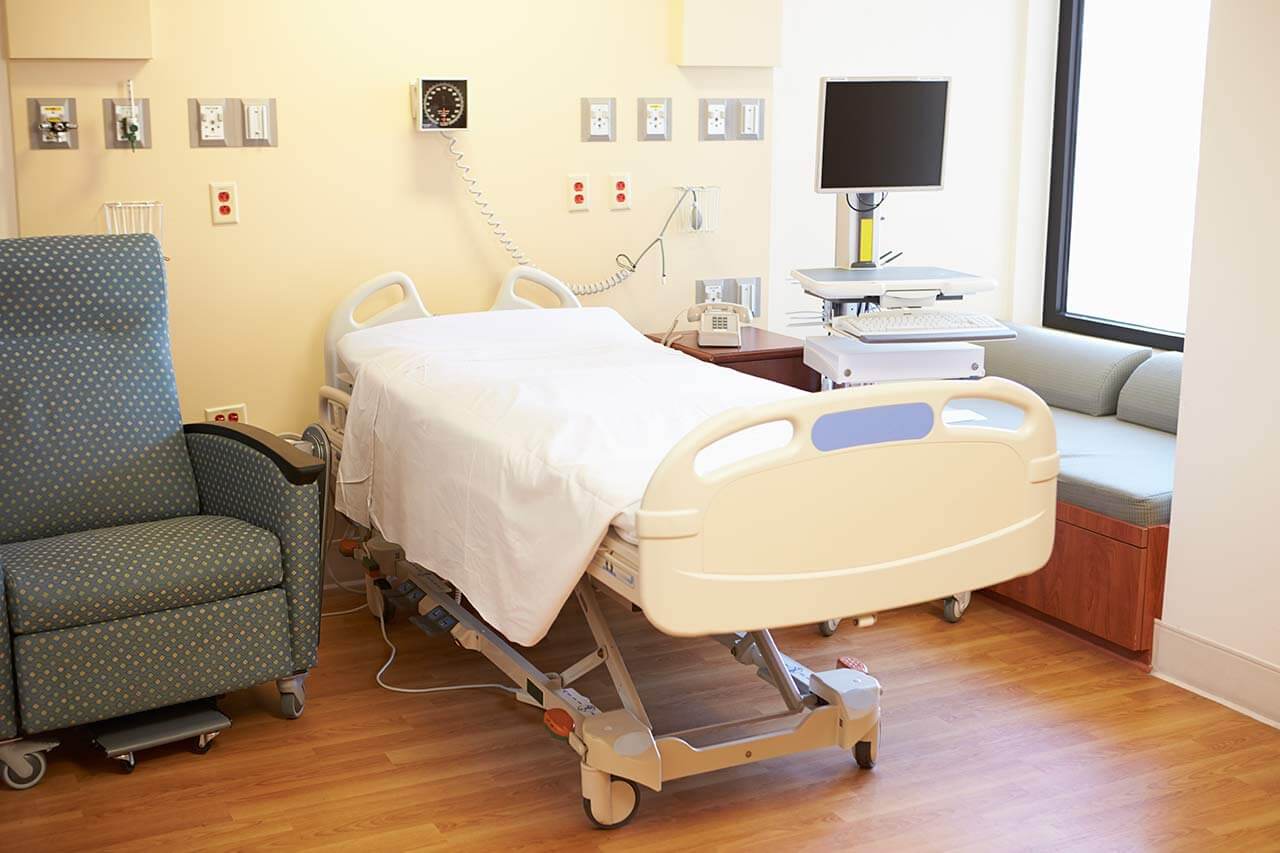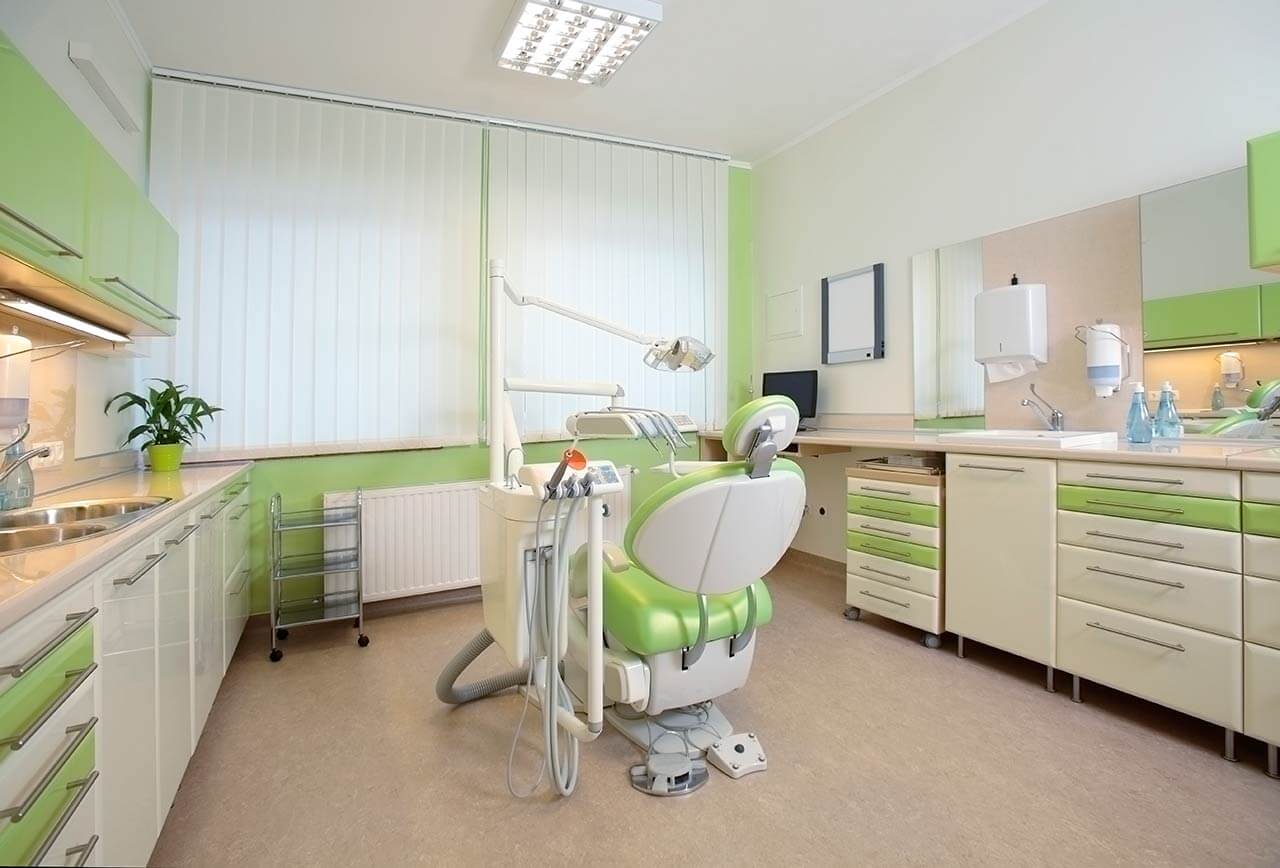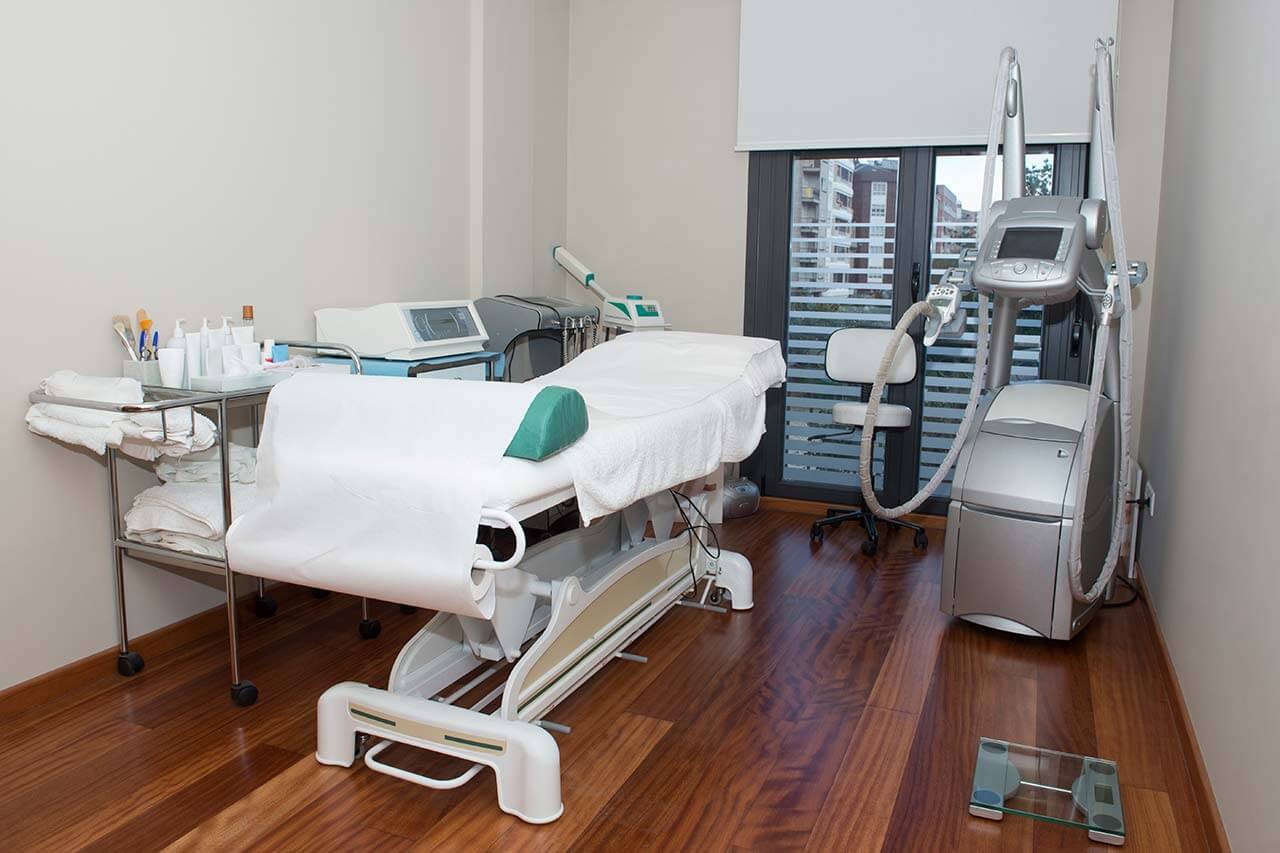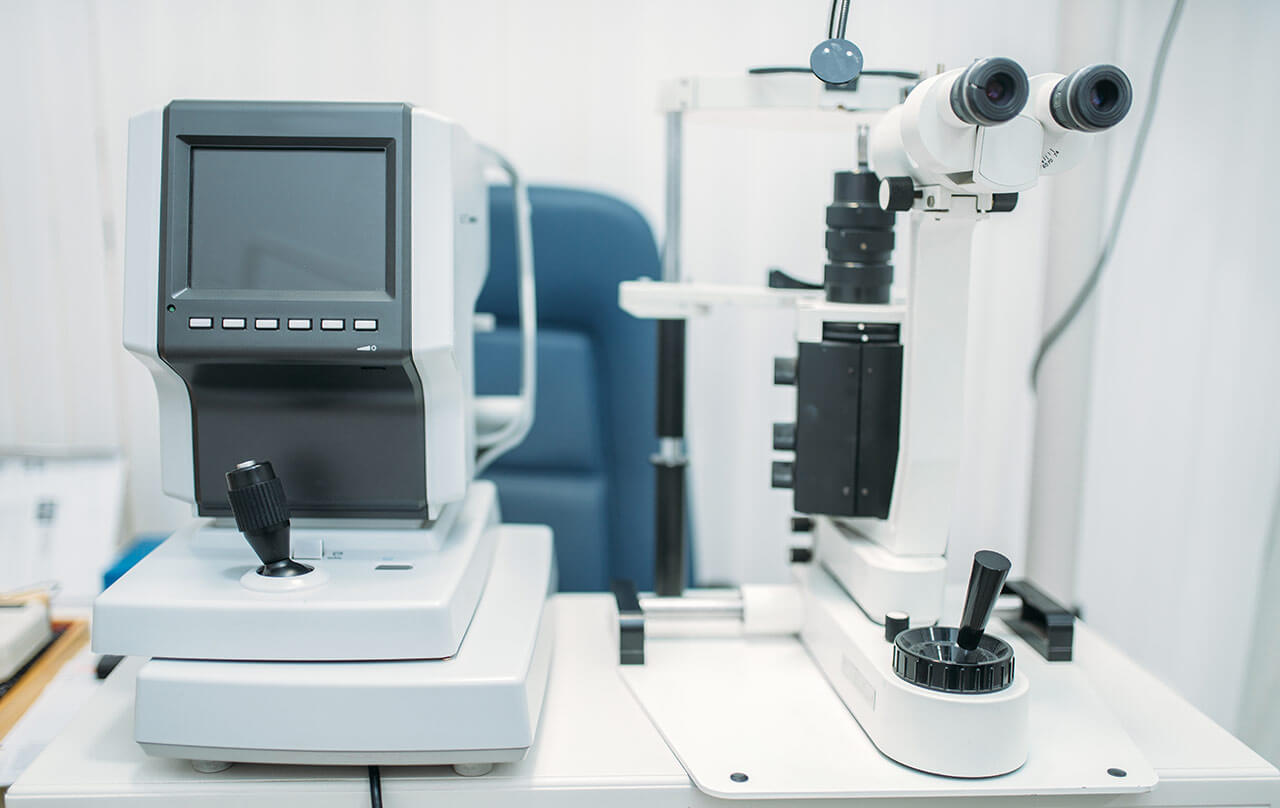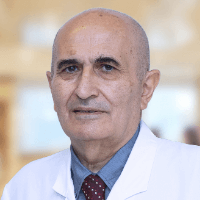
The program includes:
- Initial presentation in the clinic
- clinical history taking
- review of medical records
- physical examination
- ophthalmological examination:
- slit lamp examination
- pupil examination
- ocular motility examination
- ophthalmoscopy
- perimetry (visual field test)
- computer perimetry
- visometry (without correction and with correction)
- keratometry
- pachymetry
- refractometry (objective, subjective, cycloplegic)
- autorefractometry
- non-contact tonometry
- fluorescein angiography (if indicated clinically)
- optical coherence tomography OCT (if indicated clinically)
- gonioscopy
- photokeratoscopy
- doppler ultrasound of the retinal vessels
- nursing services
- consultation of related specialists
- treatment by chief physician and all leading experts
- explanation of individual treatment plan
Required documents
- Medical records
- Optical coherence tomography (if available)
Service
You may also book:
 BookingHealth Price from:
BookingHealth Price from:
About the department
The Department of Adult and Pediatric Ophthalmology at the Hisar Intercontinental Hospital Istanbul provides the high-quality diagnostics and treatment of the full range of diseases of the eye and its appendages in patients of all ages, including children. The Chief Physician of the department is Prof. Dr. med. Omer Kamil Dogan.
The department's doctors have advanced equipment, which allows them to carry out the accurate diagnostics, highly effective laser procedures, simple routine procedures for the treatment of ophthalmic pathologies, as well as complex operations for the treatment of cataracts, glaucoma, corneal transplantation, refractive eye surgery, etc. The department has an innovative excimer laser iLASIK, with the help of which the department's ophthalmologists successfully correct various visual impairments: myopia, hyperopia, astigmatism, etc. The efficiency of this laser system has been approved by the US Food and Drug Administration (FDA). The laser technology allows the doctor to maintain high visual acuity in patients with serious pathological changes.
The scope of tasks of pediatric ophthalmologists includes the diagnostics and treatment of visual impairments in young patients. To detect pathological changes in the eyes in children during the first months of their life, the doctors perform regular eye screenings. Particular attention is paid to premature babies, since they often suffer from retinopathy of prematurity. The most common pediatric diseases treated in the department include congenital cataracts, congenital glaucoma, strabismus, nystagmus, refractive errors (myopia, hyperopia, astigmatism).
The clinical practice is based on an individual approach to each patient, taking into account his anatomical features, personal needs and wishes. The medical team of the department’s doctors applies all their clinical experience and deep knowledges to give patients the opportunity to see the world in its entirety.
The department's range of medical services includes:
- Diagnostics and treatment of cataract
- Diagnostics and treatment of glaucoma
- Diagnostics and treatment of corneal diseases, including corneal transplantation, cross-linking, stromal ring implantation for the treatment of keratoconus
- Diagnostics and treatment of retinal diseases
- Diagnostics and treatment of age-related macular degeneration
- Diagnostics and treatment of conjunctivitis
- Diagnostics and treatment of eye lesions caused by diabetes mellitus
- Diagnostics and treatment of refractive errors
- Myopia
- Hyperopia
- Astigmatism
- Presbyopia
- Diagnostics and treatment of strabismus
- Diagnostics and treatment of pediatric eye diseases
- Congenital cataract
- Congenital glaucoma
- Strabismus
- Nystagmus
- Refractive errors (myopia, hyperopia, astigmatism)
- Interventions on the eyelids, eye muscles, lacrimal glands, soft tissues and orbital bones (oculoplastic surgery)
- Other medical services
Curriculum vitae
Higher Education and Postgraduate Training
- Study of Human Medicine at the Faculty of Medicine of the Ankara University.
- Assistant Professorship at the Faculty of Medicine of the Ankara University.
- Professorship at the Faculty of Medicine, Selçuk University.
- Internship in Diagnostics, Moorfields Eye Hospital, London.
Professional Career
- Work in the Department of Ophthalmology at the Ankara University.
- Work in the Department of Ophthalmology at the Lutfi Kirdar Kartal Education and Research Hospital.
- Medical Director, Avrupagöz Hospital.
Clinical Interests
- General ophthalmology.
- Glaucoma treatment.
- Treatment of corneal diseases.
- Corneal transplantation.
- Treatment of conjunctival diseases.
Memberships in Professional Societies
- Turkish Ophthalmological Association.
- Turkish Medical Association.
Photo of the doctor: (c) Hisar Hospital Intercontinental
About hospital
The Hisar Intercontinental Hospital Istanbul is a private multidisciplinary medical facility, which provides top-class diagnostics and treatment in the most comfortable conditions for each patient. The hospital was founded in 2006 and today can be proud of an excellent medical and technical base, excellent professional staff, authority on the national and international medical arena.
The medical complex has 170 beds for inpatient care, 7 high-tech operating rooms for surgical interventions of varying degrees of complexity, as well as an intensive care unit with 36 beds. The hospital represents almost all fields of modern medicine, while a special focus is made on ophthalmology, plastic surgery, reproductive medicine and dentistry.
The hospital thoroughly observes the safety of patients. It has state-of-the-art computerized medical system PYXIS, which recognizes nurses by fingerprints. The system improves the efficiency of dispensing the necessary drugs to the patient, each time determining the type and dosage of the drug dose using wireless confirmation. As for the innovations, it is also impossible not to mention the advanced top-class computed tomography system Aquilion One, as it plays an important role in the early diagnostics of many diseases. As of today, Aquilion One is the most powerful and innovative scanner in the world, which can provide the accurate high-resolution images using the lowest radiation dose.
The outstanding quality of the medical services in the hospital is recognized by the prestigious Joint Commission International (JCI) certificate, which it received in 2006 for the first time. In 2017, the hospital was successfully recertified. During the certification procedure, the compliance of the medical facility with more than 1,500 criteria was checked. These included treatment safety, qualifications of medical personnel, quality of surgical treatment and anesthesia, etc.
It should be noted that the medical complex has a helipad for transporting patients, which confirms the readiness of the hospital to provide medical care in emergency cases.
Photo: (c) depositphotos
Accommodation in hospital
Patients rooms
The patients of the Hisar Intercontinental Hospital Istanbul live in cozy and comfortable rooms with all the necessary amenities. Each patient room has an ensuite bathroom with shower and toilet. The standard patient room includes an automatically adjustable bed, a bedside table, a wardrobe, a small sofa for receiving visitors, a TV and a telephone. If desired, the patient can live in the enhanced-comfort room, which is additionally equipped with a safe, a refrigerator and upholstered furniture.
Meals and Menus
The patient and the accompanying person are offered tasty and balanced three meals a day. If for some reason you do not eat all foods, you will be offered an individual menu. Please inform the medical staff about your food preferences prior to treatment.
Further details
Standard rooms include:
Accompanying person
During the inpatient program, the accompanying person can live with the patient in a patient room or a hotel of his choice. Our managers will help you choose the most suitable option.
Hotel
During an outpatient program, the patient can stay at the hotel of his choice. Our managers will help you choose the most suitable option.
